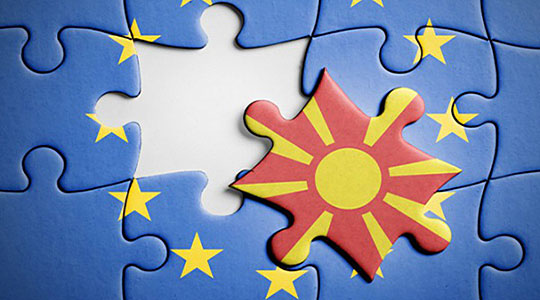German official Michael Roth and the Slovak Foreign Minister Ivan Korcok called for the opening of EU accession talks with both Macedonia and Albania. Their call comes amid increasing reports that Macedonia, blocked by Bulgaria, will be left behind while Albania begins accession talks alone.
Germany supports Portugese EU-Presidency’s objective to hold first accession conferences with both Albania + (North) Macedonia in June. Both countries have delivered on required reforms – now EU has to deliver, too. Further delay undermines EU credibility and stability in the region, Roth said while sharing a news report from EU Commissioner Oliver Varhelyi, saying that Albania and Macedonia could decouple, with Albania advancing alone. Roth is a strong supporter of the Zaev regime, and has been eager to see it avoid another major foreign policy humiliation.
Meanwhile, EU spokeswoman Ana Pisonero confirmed Varhelyi’s announcement that, if there is no progress in talks between Macedonia and Bulgaria, the option of having Albania go ahead alone could be looked into. She added that the Commission would still like to see accession talks begin with both countries. Bulgaria is blocking Macedonia with a demand for significant concessions on issues of national identity and history. Albania was also blocked because of its rule of law defects, primarily by Holland, but seems to be on the verge of removing these obstacles. Some Brussels based news outlets responded to Varhelyi’s comment by casting doubts whether he talks for the EU Commission, but it’s clear that there are divisions among member states about the issue of decoupling.
And while the Macedonian Government is unlikely to openly criticize the proposal, Zaev’s Deputy Prime Minister for EU affairs Nikola Dimitrov obliquely condemned the idea of allowing Albania to pass ahead of Macedonia in the EU enlargement process.
The overwhelming majority of EU member states support having conferences with both Albania and (North) Macedonia. I also understand that is the official position of the EU Commission. That’s the goal we are working for. My country has fulfilled all conditions that were set in line with European values as repeatedly assessed by the Commission itself. As a country that signed the Accession and Stabilization treaty 20 years ago, first in the region to do so, as a candidate country for 16 years, as a country that has in recent years shown considerable progress in reforms and leadership in resolving the name issue, the case of (North) Macedonia is a test of EU’s credibility in the Western Balkans: will the EU keep its promises?, Dimitrov told Euronews.





Comments are closed for this post.